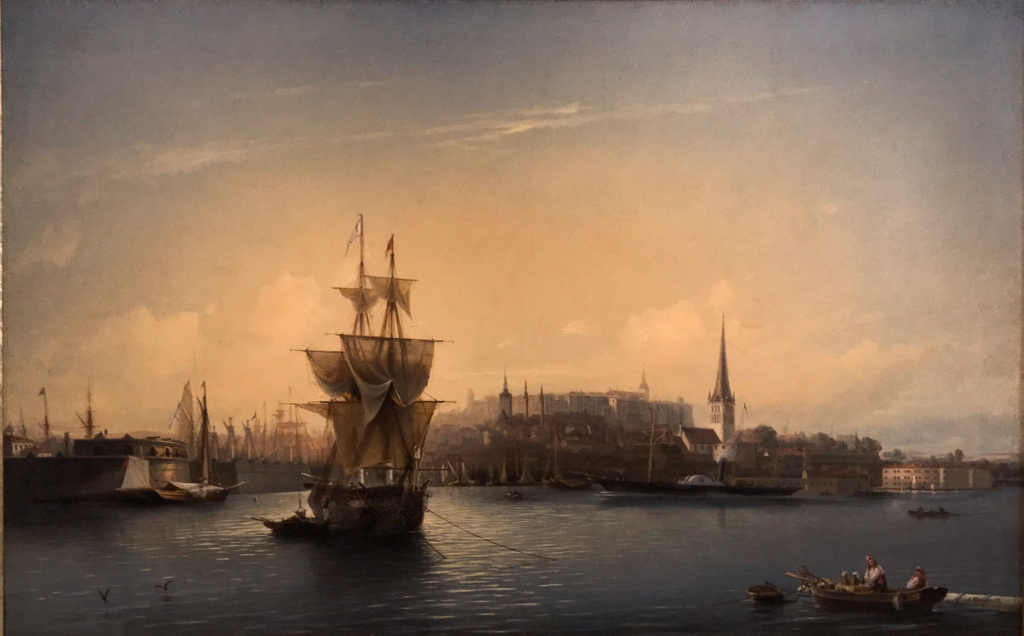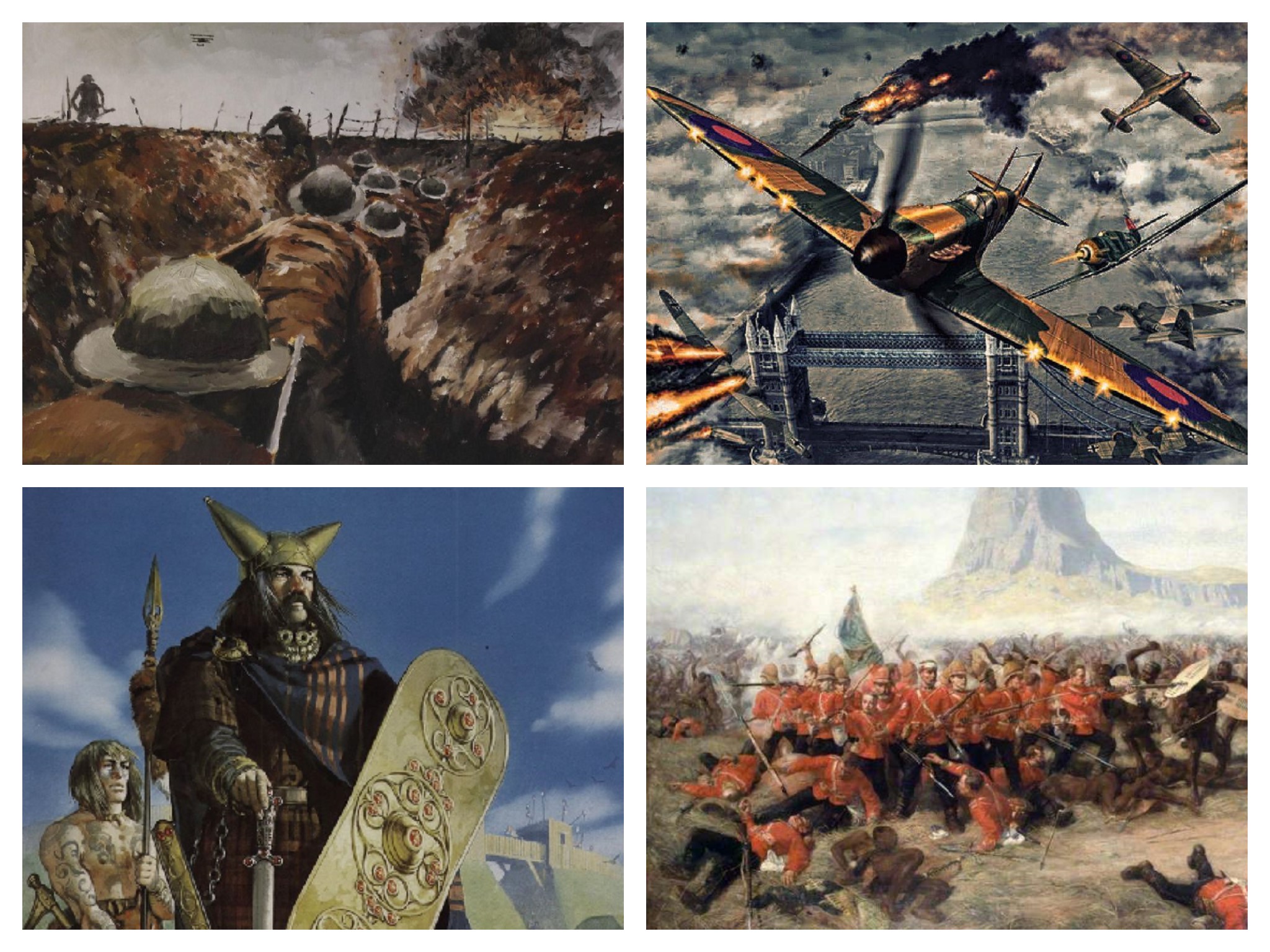
Last weekend I had the pleasure of attending the Scandza Forum in Tallinn, Estonia. In his opening address to the conference, organiser Frodi Midjord stated that he had chosen Tallinn as a venue because it showcases the best of Europe, architecturally, culturally, and demographically. In this respect, the location was most certainly well chosen – with an unseasonably pleasant sun shining on the Hanseatic jewel of the North, surrounded by friends old and new, it was hard not to feel a sense of optimism and camaraderie as we strolled the medieval cobbled streets of the City of Spires. Yet I must admit that I returned to Estonia for the first time in several years with trepidation in my heart, because while the Spring sun framed the beauty of the land, a catastrophic political storm has been brewing, and it is just now making its destructive landfall.
Estonia is a small country, small enough that the first person I encountered upon leaving my apartment was none other than Martin Helme, leader of Estonia’s Conservative People’s Party (EKRE). He was on his way to the Estonian Parliament (Riigikogu) to continue a marathon unprecedented political deadlock, in which the EKRE and several other opposition parties are running a continuous filibuster to stymie the policies of recently re-elected Prime Minister Kaja Kallas and her liberal Reform Party. On the surface, the ostensible disagreement seems politics as usual; Kallas is attempting to increase taxes and cut services amid Estonia’s skyrocketing inflation and ailing economy. Yet this is no ordinary political disagreement, but a battle for the very soul of Estonia, because the platform of the Reform Party is one which seeks to radically and irreversibly transform the nature of Estonian society.
Amid the medley of economic bills there are proposals to implement new hate speech legislation, to legalise same sex marriage, and to continue to encourage immigration to Estonia, which in 2022 saw its lowest natural birth rate in a century and highest levels of migration to date. Even the nature of the constitution and electoral system has been called into question, with Martin Helme contending that Estonia’s entirely online voting system has been rigged, and with the government potentially planning to end the current opposition in the Riigikogu by extraordinary legal means. Kallas and her Reform Party thus represent the most fanatical embodiment of the neoliberal cultural terror machine, trampling on the freedoms, rights, demographics and even the architectural and cultural heritage of the nation.
This story is perhaps par for the course in most Western states, yet it takes on a particular poignance in Estonia, this tiny nation in which there are fewer than a million ethnic Estonians, who have for millennia struggled for their sovereignty and ethnic continuity. The Estonian constitution states that its aim is to “[…] guarantee the preservation of the Estonian people, the Estonian language and the Estonian culture through the ages.”[1] By this token the Reform Party and Kallas represent a metaphysical sickness, a betrayal of the tribe, which in times of old would result in being cast into the deep swampy bogs of the primeval land.
The rapidity with which Estonia is changing prompts the question, why has this happened now? It is tempting to answer that both the individual and the moment have coincided. Kallas is the daughter of former Estonian Prime Minister and later European Commissioner Siim Kallas. Kallas herself has an impeccable degree as Eurocrat, serving as a member of European Parliament prior to her election. There is no doubt she is motivated by living a life dominated by liberal technocratic values. Yet the on-going war in Ukraine has also allowed her to mobilise the historically informed Estonian national neurosis about a potential Russian invasion, and enabled her to describe her opponents as simultaneously Hitler and Putin. It may simply be the case that many Estonians dislike her policies, but they have chosen to trade freedom for supposed security, hoping multinational institutions such as the EU and NATO will shield them. Whether this is true or not is up for spirited debate, but it is undoubtedly the case that liberal politicians are exploiting this issue as the Trojan horse with which to fundamentally change Estonian society.
This is not the full explanation, however. In truth it is likely that if it was not Kallas and the Reform Party implementing this agenda, another party and politician would have taken up the cause. Estonia has been targeted for the very reasons that brought we dissidents to gather there this weekend. For our enemies, it is unacceptable for a homogenous, peaceful, and traditional European society to be allowed to continue to exist unmolested. The problem with beauty is that it attracts envious eyes and envious empires, and throughout Estonian history imperial domination has come from a dizzying array of powers and ideologies. Swedes, Danes, Russians, Germans, have all sought to remake Estonia. The Teutonic Knights imposed Christianity on Estonia by the sword, and the Soviet Union attempted to subsume it into its warped vision of egalitarian utopia. It is now the turn of the hegemonic neoliberal empire to try and remake the Estonian people, and if they succeed it may well be the definitive end for a tribe that has survived innumerable wars and privations.
If we are being honest with ourselves, we cannot entirely say that a shadowy cabal has imposed this fate on the Estonian people. Many of them are collaborating, not for security and safety, but out of pure avaricious greed; a gold lust that has infected the heart of a segment of the population. They have willingly cast down the peasant built Estonian cabins and erected glass cathedrals to capitalism; they have eagerly severed their roots to the tree of life. In Estonia’s hour of need, this flock of Iscariots have thrown the gates open, for nothing more than a few pieces of silver. These app-brained cretins have sold their birth right for cheap taxi rides and immigrant delivered fast food. They will not only be answerable to St Peter, but to every Estonian who has ever lived and sacrificed and died; in the final account to their ancestors, they will be found wanting. Spiritual oblivion awaits them.
Yet this is not a tale of national lament. Estonia is being made an example of precisely because of its spirit of resistance. It is not incidental that the speeding up of the processes of national destruction accelerated once Estonia elected Martin Helme and his EKRE Party to government in 2019. By doing so, Estonia drew the eye of Sauron and the ire of globalist elites. Most recent polling data suggests that the EKRE is now neck and neck with Kallas’ Reform Party. The battle for the soul of the nation has only just begun, and we must never underestimate the Estonian people’s will to survive and control their own destiny.
It may well be that far from being a tale of woe, Estonia will be a beacon to ethnonationalists around the world because in a small country, it is possible to make big changes. The problems of the UK and the US often seem so massive, so impersonal, and so intractable that a single individual or small group cannot effectively make a difference. Of course, ultimately our aim is to retake all of our homelands, but from small stones come avalanches. It is popular amongst some sections of the right to deride ‘petty nationalism’ and to dream of a united European imperium, or the repurposing of institutions such as NATO and the EU for our own ends. It is said that small nations will always be prisoners of geography, simply the weak suffering what the mighty may do to them. But this forgets that small tribes are the indivisible building blocks of great institutions and that if things have gone wrong in the organisation of our world, then perhaps the solution is not that of monolithic institutionalism, but of tribal confederation.
Estonian identity is not to be found in elaborate palaces or awe-inspiring castles. There is nothing on the scale of Neuschwanstein Castle or Belvedere Palace here. The essence of being Estonian is found in the taste of black rye bread, the appreciation of the uniqueness of the Baltic quality of light and the skyscape as its orange hues light up the bay of Tallinn; in the quiet excitement and kinship of hearing the gentle lilt of the Estonian language being spoken when abroad. It is found in the music of Veljo Tormis and Arvo Pärt, which stems from introspection in Estonia’s ancient birch forests. This conception of national identity may seem quaint to those who extol only the Faustian conquering martial European spirit, but these indelible shared experiences may well form bonds strong enough to withstand yet another attempt to reforge the people by an alien and destructive ideology.
In his address to the Scandza Forum, former EKRE MP Ruuben Kaalep noted that Estonia’s national epic Kalevipoeg ends with the prediction that the mythical king of Estonia will one day return. Well, each Estonian that now stands against those who would destroy the tribe in his own way represents the return of the king, regardless of his social station. By resisting he demonstrates a royalty of a noble soul, which contrasts against the degenerate merchant spirit of those who seek to trade away the nation.
This weekend’s gathering also demonstrates that Estonians do not fight alone. All European and European founded nations face the same fundamental problems and destructive processes. Whether you live in Tallinn or Toronto, we are all engaged in the same struggle. Much is made of the difference and conflicts between branches of the European family, but throughout our history on matters of true importance we have co-operated as much as we have competed. England’s Canterbury cathedral was designed by a Frenchman, and this is often the case for many of our greatest architectural treasures. Innumerable European nationalities fought and died in the struggle against Bolshevism. The modern conception of liberal internationalism is of course a negative and a destructive one, but the antidote to it is a network of nationalists operating internationally.
Herein lies the ultimate value of face-to-face events, especially in the lonely and atomised post-Covid world. History belongs to those who show up, and while speeches may give food for thought, they are often soon forgotten, but the bonds of fellowship made can endure a lifetime. It is heartening to meet other informed, serious patriots whether they are Finnish, Icelandic, American, Swiss, Faroese, or British. Ultimately Estonia’s fate will be decided by Estonians – but it is nevertheless encouraging to see how many others from around the world are willing it on to succeed in its mission to remain a country to be emulated and envied, rather than to be pitied.
The unjustified denial of entry to Europe of Jared Taylor to address the conference, and the conviction of James Allchurch in the United Kingdom for the crime of nothing more than podcasting are sobering reminders of both the seriousness and stakes of our cause, as well as the fate that will befall Estonia if it surrenders its freedoms. But I remain steadfast in the belief that in this small nation we can strike a mighty blow against the forces of darkness, if we all redouble our efforts to preserve our people and heritage, we can not only save Estonia, but all of our nations.
[1] https://www.riigiteataja.ee/en/eli/521052015001/consolide

Recent Comments